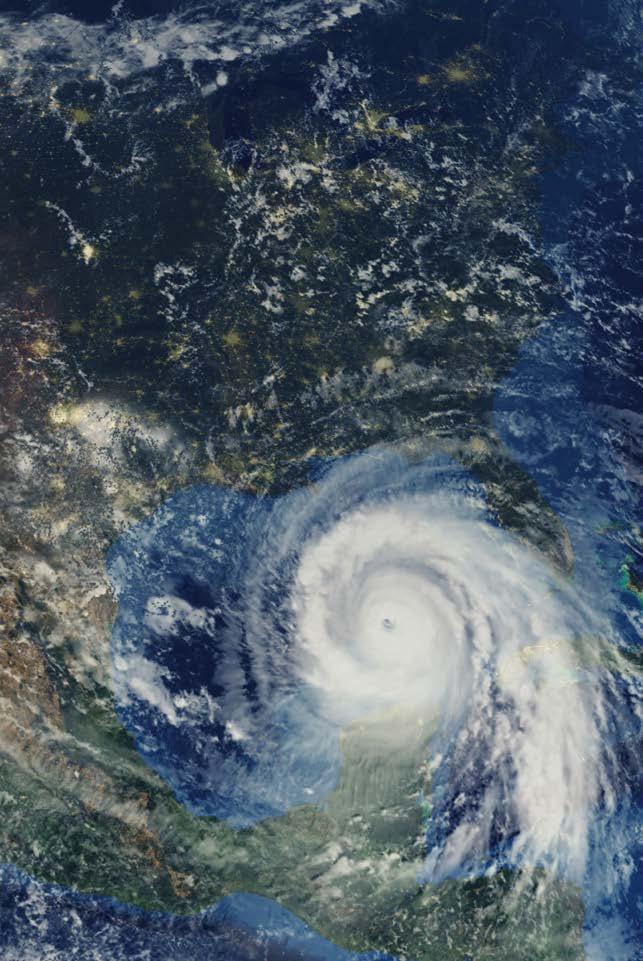
7 minute read
Random Thoughts
The Louisiana curse of abundance
JR BALL
WHO’S TO BLAME for Louisiana being in the state it’s in?
In an age when finger-pointing is all the rage, who can we tear into for our state trolling the bottom in all the good listicles while pushing for No. 1 in the bad ones?
Who can we annihilate for our substandard public education system? Our disdain for higher education? Our tragically high poverty rate? Our morbidly poor health?
Who can we stare down with the rage of a thousand suns over this state’s putrid economic rankings? Our dismal business environment? Our bottom-10 business tax climate. Our sluggish employment. Our laggard economic growth?
If transferral of blame is America’s favorite pastime, as former LSU baseball legend Skip Bertman once told me, then who among our confederacy of dunces can we shame for this comedy of errors?
Seriously, why is a state so rich in natural resources so pathetic in pretty much everything else? Too harsh? The numbers don’t lie. According to U.S. News & World Report’s 2021 Best States Rankings, determined by weighted evaluations of 71 metrics across eight categories, Louisiana is dead last among the 50 states.
No longer can we say, “At least we’re better than Mississippi.”
Among the ranking’s eight main categories, our state ranks 46th or worse in seven: health care (46), education (48), economy (47), infrastructure (47), opportunity/equality (48), crime and corrections (50), and natural environment (49). Louisiana’s shining light is fiscal stability, which checks in at No. 42.
Now, back to who can we eviscerate.
Remember Huey Long, the populist governor, who launched his political career by waging war on the big oil companies? The boisterous, every-man-a-king, quasi-socialist declared in 1929 that he’d rather suffer “a thousand impeachments” than “not dare to call the Standard Oil Company [now ExxonMobil] to account.”
Perhaps, but just five years later, while he was a senator, Long and his political cronies, had the chutzpah to form a company that bought up state mineral leases and resold them to oil companies at an eye-popping profit—keeping a tidy sum for themselves. Long died a year later in 1935, but the royalty money rolled to family and friends for decades.
The wealth Long and his associates made for themselves came at a steep price for the rest of Louisiana. Not only were most of those sold leases in wetlands—requiring the building of a sprawling network of roads and canals through the bayous—but the deals also sparked others to get into the game. After the wells and rigs came the refineries and plants, and then came the port facilities.
It was a price we’ve been willing to pay. Louisiana tethered its economy to oil and gas and hasn’t looked back.
All that may have been fine, but this deal with the devil cast the state under what’s known as “the resource curse”: the paradox that countries rich in a natural resource tend to grow more slowly and have lower living standards than other nations. Bottom line, Louisiana is America’s petro-state.
No doubt, a lot of people made serious money off oil and gas, but the state didn’t prosper. Instead, our fossil fuel alliance fostered dependency, corruption, indifference to the environmental cost and ambivalence about such things as education. And it only got worse in the 1970s when the corporate offices for these oil and gas companies began a mass exodus for Texas, taking with them the huge profits sucked from the Louisiana ground.
Oil and gas didn’t create Louisiana’s problems, but our willingness to trade—straight up—an agricultural plantation culture for an oil and gas culture has made it impossible for us to adapt to an evolving economy. As bad, when the money was rolling into state and local government coffers, none of it was saved for investments or rainy days. Instead, we cut taxes.
Efforts to diversify the Louisiana economy have been ineffective. GMFS was to be our Research Triangle, but politics killed it. The Silicon Bayou effort has been a failure and we continue to largely ignore medical research opportunities. Meanwhile, places like northern Virginia built tech corridors, attracting more than a dozen Fortune 500 companies and a massive Amazon corporate complex. Here, in Baton Rouge, Albemarle skipped town as soon as the subsidies ran dry, and our Amazon score is an on-the-way regional distribution center.
This isn’t to suggest the oil and gas industry should go away, but it’s long past due for the state to cut the umbilical cord.
Today’s economy is driven by innovation, technology and research. Education and quality of life, not what’s in the ground, determines the winners.
Our leaders need to focus on the titanic shift that’s urgently necessary, rather than making it easier to own a gun, harder to vote or demanding that we teach our children the “good stuff” about slavery—as well as “the bad and the ugly.”
Louisiana is the national equivalent of those panhandlers at the College Drive interstate exit, yet we’re scrambling to stop a hypothetical transgendered child from joining the girl’s track team?
If we don’t end this curse, then Louisiana will forever remain the banana republic that it’s been ever since that infamous day in 1901 when a farmer near Jennings discovered oil in his rice field.





THE WHITE PAPER
SPONSORED CONTENT
HURRICANE PREPAREDNESS SHOULD START NOW

Melanie Eusea
General Informatics
WITH HURRICANE SEASON UNDERWAY, now is the time to ensure your business is prepared to recover quickly after a storm. 2020 broke the record for the most named storms in the Atlantic hurricane season, including five storms making landfall in Louisiana. That is five times that Louisiana businesses risked impact by a hurricane.
Whether discussing the severity of Hurricane Katrina or the detrimental impact of the 2020 hurricane season, business owners should be able to focus on their families, employees, and customers, not the potential impact a disaster will have on their business.
That is why General Informatics has made it their job to focus on the disaster for them.

BACK UP YOUR BUSINESS
Louisiana hurricanes can potentially impact your business for days, weeks, or permanently. 75% of companies without a good business continuity plan go out of business after a disaster.
Every organization needs a plan to maintain or get back to normal operations quickly. One of the biggest threats businesses should prepare for is the potential loss of critical data.
A solid backup of your data (client files, accounting info, HR records, etc.) is essential to making sure your business can return to normal operations. Critical data should be backed up o site or in the Cloud.
With a cloud solution like General Informatics’ Server 365, your data is stored in secure, high availability, geo-redundant cloud servers. This allows users to access files needed to get back to work in minutes, whether they evacuated or stayed home.
This step not only reduces operational downtime from a disaster, but allows business owners and employees a sense of ease during an alarming time.
DISASTER-PROOF PLAN
Data backups are essential, but it is not the only measure companies should take. Hurricanes or Louisiana tropical storms can cause catastrophic damages to IT hardware.
Businesses should ensure their servers, network equipment, and PCs are properly protected. Small steps businesses can take include investing in UPS Battery Backups to protect against sudden outages or power surges and keeping all IT equipment at least 18 inches o the ground to prevent water damages.
Now that your data and hardware are protected, you can focus on what matters most to your business, your employees, and clients. Creating an emergency communication plan is essential to stay connected during a hurricane.
In the immediate aftermath of a large-scale disaster, typical lines of communication can go down. Communication is vital day-to-day, but it is especially important during an emergency. Having an Emergency Communication System allows you to quickly communicate critical information to your entire team.
This structure will help employees know what is expected of them while allowing employers and employees to communicate any issues.
As a Louisiana based company, General Informatics knows the severity of a hurricane. That is why we focus on the disaster, so you can focus on your business.
Melanie Eusea has been with General Informatics for 12 years, currently serving as Director of Service and Member of the Strategic Leadership Team, ensuring client excellence.
DISASTER-PROOF YOUR BUSINESS
3 CRITICAL ITEMS THAT SHOULD BE ON YOUR EMERGENCY PREP CHECKLIST
1. Ensure your data is backed up 2. Protect your IT hardware (servers, pcs, networking) 3. Create a communication plan

Cloud • Networks • Software • Security • Intelligence






